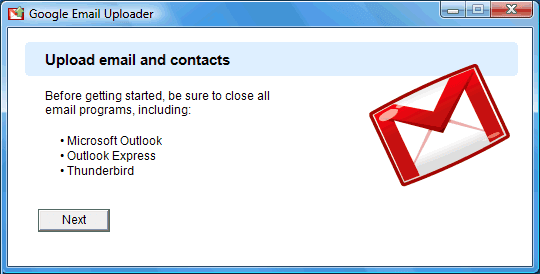
The latest version of Google Desktop
no longer enables by default the desktop search engine probably because it uses too many resources. I thought this is a good opportunity to list some ways you could improve Google Desktop's performance, especially if you want to use it as a search engine and not as a widget engine.
When you install
Google Desktop 5.5 for Windows, the enhanced search option is disabled and you should leave it that way for now. If you don't need the sidebar with gadgets, disable the option from Google Desktop's setup wizard.
Google Desktop will only index the shortcuts from the Start Menu, the entries from Control Panel. To enable the indexing of your files, right click on the system tray icon, select "Options" and click on the check box next to "Enable Enhanced Content Indexing". Some other relevant options:
*
Disable the search types you don't find useful. "Web history" indexes all the web pages that you load in Internet Explorer and Firefox, so it uses a lot of disk space. If you use Outlook or other email clients and you don't want to index the email messages from your computer, disable the "email" options. Google Desktop can also search Microsoft Outlook's Calendar, Contacts, Tasks, Journal, and Notes, so disable these search types if you're satisfied with Outlook's search options.
*
Exclude folders from indexing. Since Google Desktop tries to index files from your entire hard disk, it's important to exclude the folders that don't contain useful files for a desktop search engine. Some examples:
C:\Program Files\ (don't exclude it if you use Google Desktop to launch apps)
C:\Windows\ (don't exclude it if you use Google Desktop to launch apps)
C:\ProgramData\ (in Vista)
D:\ (if D: is used for backup)
*
Exclude file extensions from indexing. There's no option for this in the interface, but you can edit this Registry key and add other extensions you want to exclude. The default excluded extensions are: tmp, temp, moztmp, log, pst, ost, oab, nk2, dat, 000, pf, xml, obj, pdb, tlb, pcc, pch, exp, res, map, sconsign, msf. You can also disable other extensions that aren't associated with useful content: bak, chk, old, gid, prv, wbk, dll.
The Registry value can be found at:
HKEY_CURRENT_USER\Software\Google\Google Desktop\file_extensions_to_skip
*
Disable the Google integration. By default, Google performs a desktop search every time you search the web and it displays some results from your computer
in an OneBox, above the web search results. If you want faster Google searches, less computer resources used to search your desktop and less embarrassing moments when someone else temporarily uses your computer, you can disable the integration.
*
More screen space. To disable the taskbar and show the search box by pressing Ctrl twice, select "None" for the "Display Mode". You can also disable the gadgets button if you don't use the sidebar.
*
Disable Safe Browsing. Google downloads and automatically updates a database of URLs that are used for phishing or for distributing malware and shows you a warning when you visit one of these web pages. If you use other security software or your browser has anti-phishing protection, you can disable this option.
*
Save preferences. Google Desktop will only index files when your computer is idle. "Assuming you leave your computer on, Google Desktop should need only a few days to create your initial index. This initial indexing process occurs only when your computer is idle, so you may want to leave your computer on for an evening or two after you install Google Desktop,"
explains Google's help center.
If you already have Google Desktop, excluding folders and file extensions will not remove entries from the index, so the best way to clean your index is to delete it and rebuild it. Close Google Desktop by selecting "Exit" from the system tray menu and delete this folder:
%APPDATA%\Google\Google Desktop\ (Windows XP)
or
%LOCALAPPDATA%\Google\Google Desktop\ (Windows Vista)
After reopening Google Desktop, choose "Re-index" from the system tray menu.






























